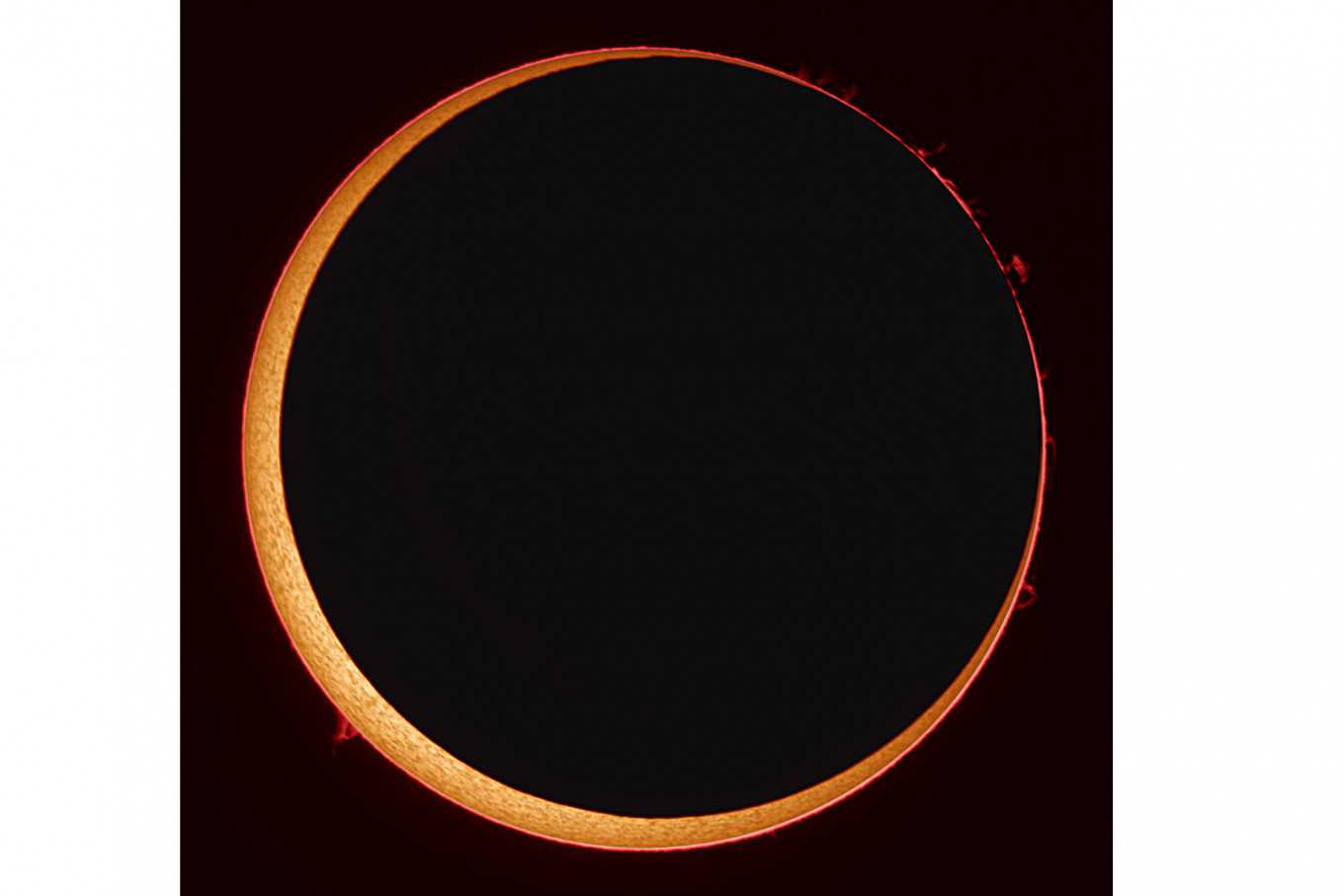Indonesia to witness rare ‘solstice annular solar eclipse’ on Sunday

Image collected
Most elements of the Indonesian archipelago will witness the rare spectacle of an annular solar eclipse, which will occur simultaneously with this year’s summer solstice in Sunday.
The National Institute of Aeronautics and Space (LAPAN) said the eclipse will be a rare phenomenon, as the last similar eclipse that could be witnessed from the archipelago occurred in 1648. Furthermore, people must wait another 19 years to be able to witness such a phenomenon again.
Indonesia will be among the many countries and areas to witness the solar eclipse, including Congo, South Sudan, Yemen, Saudi Arabia, Pakistan, India, China, Taiwan and Guam Islands.
LAPAN said the very best place to check out the eclipse would be Miangas Island in Talaud Islands, North Sulawesi. People generally in most parts of North Sulawesi, North Maluku, West Papua and Papua may also witness around 30 to 40 percent of the solar eclipse.
The complete eclipse is expected to last for just two hours on Miangas - the longest in comparison to other regions in the united states - starting at 3:22 p.m. local period and ending at 5:32 pm. The eclipse’s peak will take place at 4:32 p.m.
People in Jakarta, West Java along with most elements of Central Java, East Java, Bengkulu and Lampung will never be able to take notice of the eclipse. Several platforms will livestream the eclipse, such as the Virtual Telescope Project.
Annular solar eclipses occur when the Sun, Moon and Earth fall into line perfectly as the Moon reaches its farthest point from the planet earth. From the planet’s surface area, the Moon’s apparent diameter is normally smaller compared to the Sun’s. It accordingly blocks almost all of the Sun’s light, leaving a glowing band around the moon’s circumference.
The summertime solstice occurs when the Earth is tilted about 23.4 degrees toward sunlight, meaning the planet’s north pole is tilted directly toward the star, as reported by livescience.com. This phenomenon means the northern hemisphere will bask in extra daylight than any other moment of the entire year. (kuk)
Source: https://www.thejakartapost.com